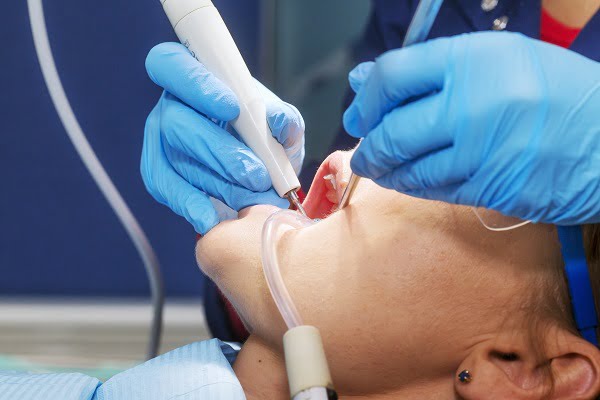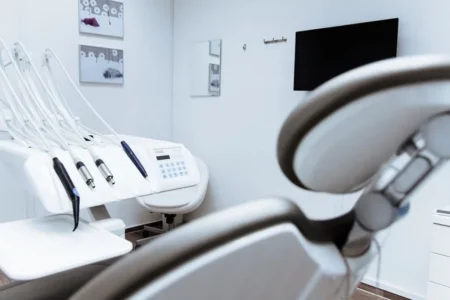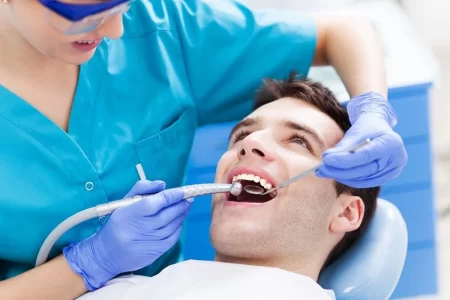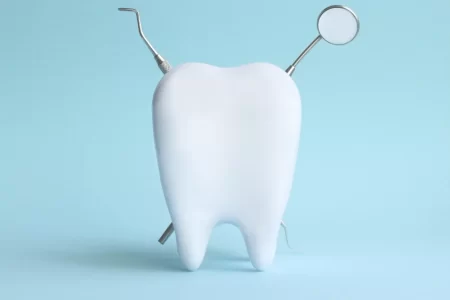Biomaterial Keeps Tooth Alive After Root Canal
- Updated on: Jun 28, 2024
- 3 min Read
- Published on Nov 23, 2018


A Research Study
Most people are afraid of a root canal procedure. It is a time consuming and painful surgery which relieves the patient from an infection tooth. One of the major disadvantages of root canal surgery is the formation of a dead tooth, with no living soft tissue or dental pulp remaining inside it.
Recently, scientists have reported the development of a peptide hydrogel which stimulates growth of new blood vessels and dental pulp within the tooth after a root canal surgery. They have presented their results at the 256th National Meeting & Exposition of the American Chemical Society (ACS).
Dr. Vivek Kumar, the principal project investigator states that after a root canal surgery, a dead tooth remains which is no longer responsive. It does not contain any nerve endings or vascular supply. So the tooth is highly susceptible to subsequent infections and can ultimately lead to falling out of the tooth.
During a root canal surgery, your dentist may drill off the top infected area of your tooth to access the soft inner tissue. Then, the dentist may remove the infected dental pulp and fills the space using tiny rubber rods called gutta percha. Then, he/she will cap the repaired tooth using a crown if needed.
Dr. Vivek Kumar and his colleague Peter Nguyen working at the New Jersey Institute of Technology, wanted to design a material which could be injected in place of the gutta percha. This newly designed material would stimulate angiogenesis (formation of new blood vessel) and dentinogenesis (proliferation of dental pulp stem cells), within the affected tooth.
Methodology
Dr. Kumar had designed a hydrogel which stimulates the process of angiogenesis when injected under the skin of rats and mice.
The hydrogel has a liquid composition which contains specialized peptides. These peptides have the ability to self-assemble with each other to form a gel at the injection site. The peptides contain a small extract of the vascular endothelial growth factor, which is a protein that stimulates growth of new blood vessels in the body. Dr. Kumar and his colleagues at the Rice University found out that the self-assembling peptide hydrogel stimulates angiogenesis under the rodents’ skin, which only persisted for three months.
Dr. Kumar thought if angiogenesis can be stimulated in a limb, it can also be stimulated in other regions of the blood where low blood flow exists. They wanted to initiate angiogenesis in the tooth. So they decided to add another protein to the self-assembling angiogenic peptide component, which allowed proliferation of stem cells in the damaged dental pulp.
Observation
When the newly added peptide was cultured in the dental pulp stem cells, they found that the peptide lead to proliferation of cells and also activated them to deposit calcium phosphate crystals, which will help in preparation of tooth enamel.
When this hydrogel was initially tested by injecting under the skin of rats, the peptide started to degrade within one to three weeks. Then the group of scientist redesigned the peptide backbone to make it much more stable and effective for a longer period of time.
Now, the team has decided to inject the peptide hydrogel into the teeth of dogs which have undergone root canal surgery, to analyze if it can stimulate dental pulp regeneration in any living animal. If these studies prove to be effective, the researchers would start studying hydrogel effectiveness in various human clinical studies. They have also filed a patent for this newly redesigned peptide molecule.
The hydrogel in its current form will not be able to reduce invasiveness or pain of a root canal surgery.
Scientists are also planning a new adaptation of this peptide molecule, which has antimicrobial activity. The antimicrobial component will kill the infection, thereby preserving the existing dental pulp to grow into a new tissue.
They want to modify the root canal procedure by drilling only a small part of the infected tooth, then removing a small portion of your pulp and adding the hydrogel. This will significantly decrease the dreadfulness of the root canal procedure.












